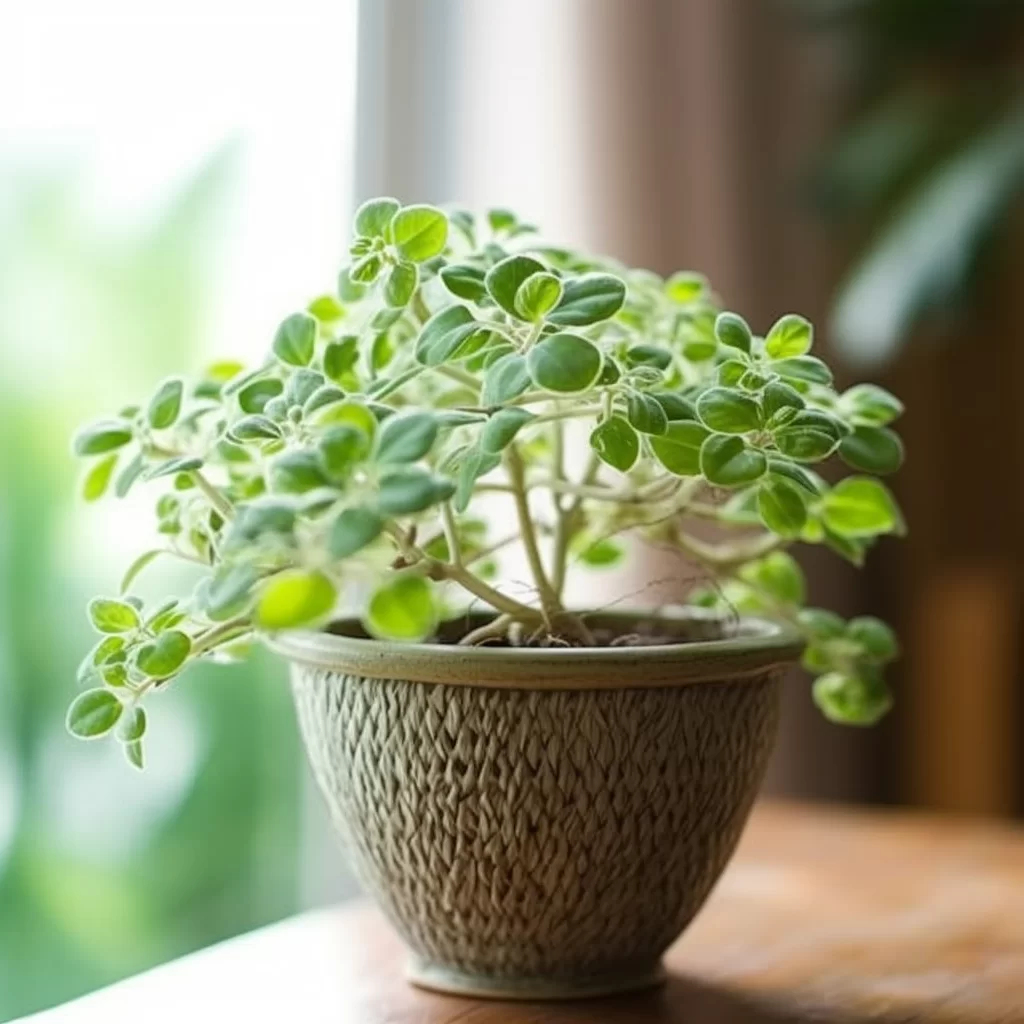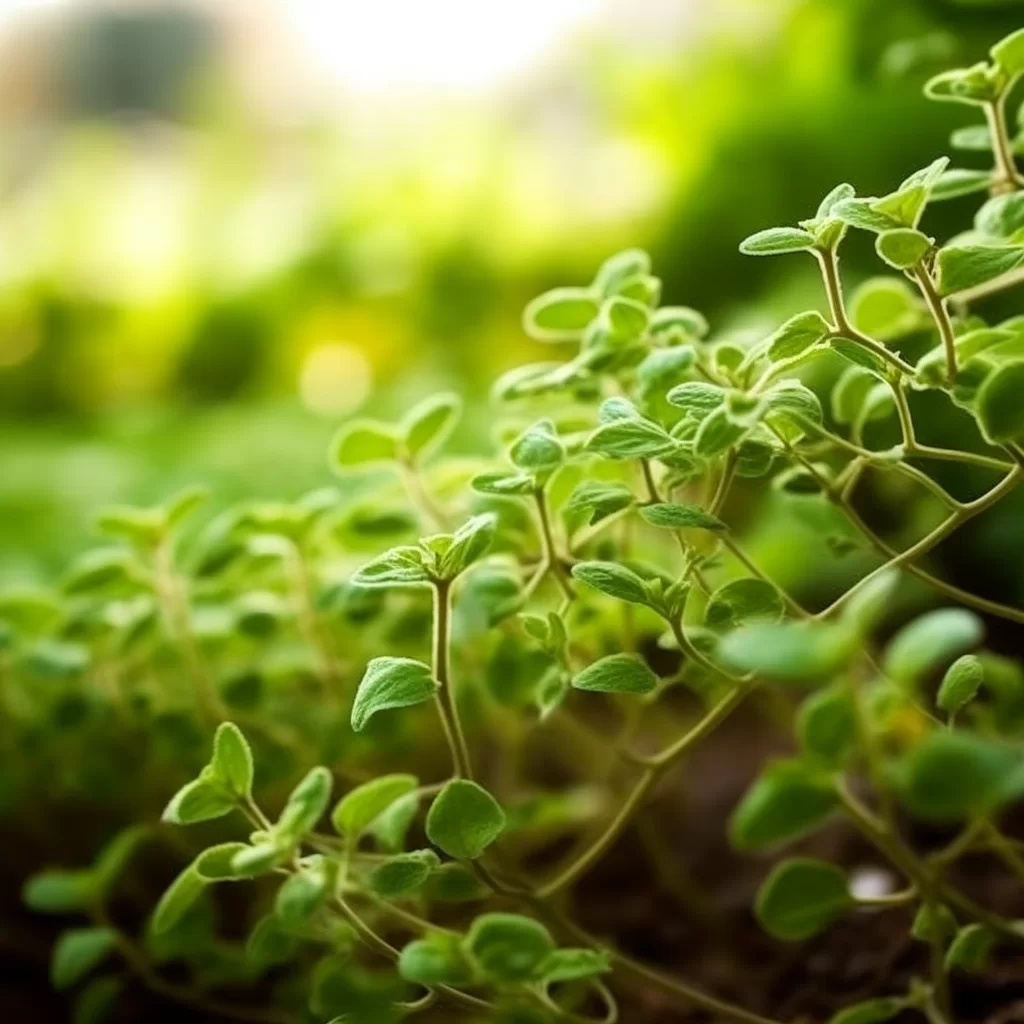Story of Day :
Contents
The Greek Oregano Plant: A Complete Guide and Care Tips
If you’re searching for an herb that can enhance the taste and scent of your food, look no further than the Greek oregano plant.
It’s a highly adaptable herb that thrives in any garden, regardless of whether you’re an expert or beginner gardener.
In this comprehensive guide, we’ll provide all the information you need to cultivate and nurture Greek oregano plants successfully.Greek oregano is a must-have for any herb garden as it adds flavor to various recipes.
It also boasts numerous health benefits such as reducing inflammation and fighting infections.
The best part is that it is easy to grow with minimal maintenance required! By following our tips on how to care for your Greek oregano plant, you’ll be able to enjoy its delicious aroma and unique flavor in your dishes all year round!
What is Greek Oregano?
Greek oregano, scientifically known as Origanum vulgare subsp.
hirtum, is an herbaceous perennial plant that originates from the Mediterranean region.
As a member of the mint family, this herb features petite green leaves that release a strong aroma when you crush them between your fingers.
In addition to its culinary uses, Greek oregano has been used for centuries for its medicinal properties and is believed to help with digestive issues. Growing up to 60 cm in height, Greek oregano can be grown both indoors and outdoors with ease.
Growing up to 60 cm in height, Greek oregano can be grown both indoors and outdoors with ease.
This herb requires well-drained soil and full sun exposure to thrive.
Unlike other varieties of oregano found around the world, Greek oregano boasts a unique flavor profile that’s more pungent and earthy in taste than other types.
Whether it’s sprinkled on top of pizza or used as a seasoning in stews and sauces, Greek oregano adds an unmistakable burst of flavor to any dish it’s added to!
Greek oregano, a herb native to the Mediterranean region, has been an essential part of cooking and medicine for centuries.
It is known for its strong aroma and flavor that adds a unique taste to various dishes.
Not only does it have culinary uses in Italian cuisines like pizza and pasta sauces, but it also has medicinal properties such as anti-inflammatory and antiseptic effects.
Additionally, Greek oregano can be used as a natural insect repellent due to its strong scent that wards off pests.In Mediterranean cultures, Greek oregano has had significant cultural importance.
Its use dates back thousands of years when it was considered sacred by the ancient Greeks who believed that it symbolized joy and happiness.
In addition to being used in traditional medicine as an herbal treatment for colds or digestive issues, it was also used during ceremonies and rituals as incense or decoration.
Today, Greek oregano continues to be celebrated worldwide for its rich flavor profile that enhances the taste of various dishes while providing numerous health benefits such as anti-microbial actions against foodborne pathogens or antioxidant properties.

How to Grow Greek Oregano Plants
Growing Greek oregano plants is relatively easy as long as you provide them with the right conditions:
- Sunlight: Like most herbs, Greek oregano needs plenty of sunlight to grow well.
Make sure they get at least six hours of direct sunlight per day.
- Soil: The soil should be well-draining but not too dry or sandy.
A pH level between 6.0-8.0 works best for this type of plant.
- Fertilizer: You can fertilize your plants every few weeks during the growing season with a balanced fertilizer.
- Watering: Water your plants thoroughly once or twice per week depending on the weather and soil moisture.
- Propagation: You can propagate Greek oregano plants by taking stem cuttings in the spring or fall.
Simply remove a 4-6 inch section of stem, strip off the lower leaves, and plant it in a pot or directly into the ground.
Caring for Your Greek Oregano Plants
Greek oregano plants are generally low-maintenance, but there are a few things you can do to keep them healthy:
- Pests: Greek oregano is relatively pest-resistant, but aphids and spider mites can occasionally be a problem.
Use insecticidal soap or neem oil to control them.
- Diseases: Root rot and powdery mildew are common diseases that can affect your plants.
Make sure they have good air circulation around their leaves.
- Pruning: Prune your plants regularly to keep them bushy and prevent them from getting too tall.
You can also harvest the leaves as needed for cooking.

Culinary Uses of Greek Oregano
If you are looking for a herb that can add a burst of flavor to your dishes, then Greek oregano is the way to go.
Its strong and slightly bitter taste is complemented by notes of sweetness and spiciness, making it a versatile ingredient that can be used in different recipes.
Whether it’s meats, vegetables, soups, stews or salads – Greek oregano pairs well with almost anything.One of the great things about using Greek oregano in your cooking is that it adds depth and complexity to your dishes without overpowering them.
This makes it a popular choice among chefs who want to enhance the flavors of their creations without compromising on taste.
So if you want to take your culinary skills up a notch, consider adding some Greek oregano to your spice rack – its bold flavor will not disappoint!
A popular herb that is a must-add in many Mediterranean dishes is making waves all over the culinary world.
Due to its aromatic nature, this ingredient is a favourite among chefs and home cooks alike.
Whether it’s tzatziki sauce, moussaka or dolmades, this herb adds the perfect amount of flavour to these traditional dishes.
It has become an essential part of Mediterranean cuisine and its versatile nature allows for it to blend seamlessly with various ingredients. The popularity of this herb arises from its unique earthy flavour that can enhance any dish it’s added to.
The popularity of this herb arises from its unique earthy flavour that can enhance any dish it’s added to.
Its zesty taste makes it a perfect addition in sauces like tzatziki or as a topping on feta cheese salads.
The herb’s fresh aroma adds depth and complexity to vegetarian delights such as spanakopita (spinach pie) or when stuffed into grape leaves for dolmades, which are perfect midday snacks.
The uses of this culinary gem are endless and have made their way across borders as more people fall in love with the taste of Mediterranean cuisine around the globe!
The Health Benefits of Greek Oregano
In addition to its culinary uses, Greek oregano has several potential health benefits:
- Antioxidants: Greek oregano contains high levels of antioxidants that can protect your cells from damage caused by free radicals.
- Antibacterial: Some studies suggest that oregano oil may have antibacterial properties against certain strains of bacteria.
- Anti-inflammatory: Oregano contains compounds that may help reduce inflammation in your body, which is linked to many chronic diseases.
In Conclusion
Greek oregano is a fantastic herb that offers many benefits.
Not only is it easy to cultivate and maintain, but its robust flavor is perfect for culinary use.
Additionally, Greek oregano has been known for centuries to have medicinal properties that can aid in digestion, reduce inflammation, and even help treat respiratory illnesses.
This makes it an ideal herb for any garden or kitchen where healthy eating and living are important.If you’re looking to grow your own Greek oregano plant, there’s no need to worry about the process being difficult.
With the tips and advice provided in this article, you’ll be able to start cultivating your herb garden with ease! So why not take advantage of all the benefits of this incredible herb? Get started today by planting your first Greek oregano plant and enjoy its delicious taste while reaping its potential health advantages!